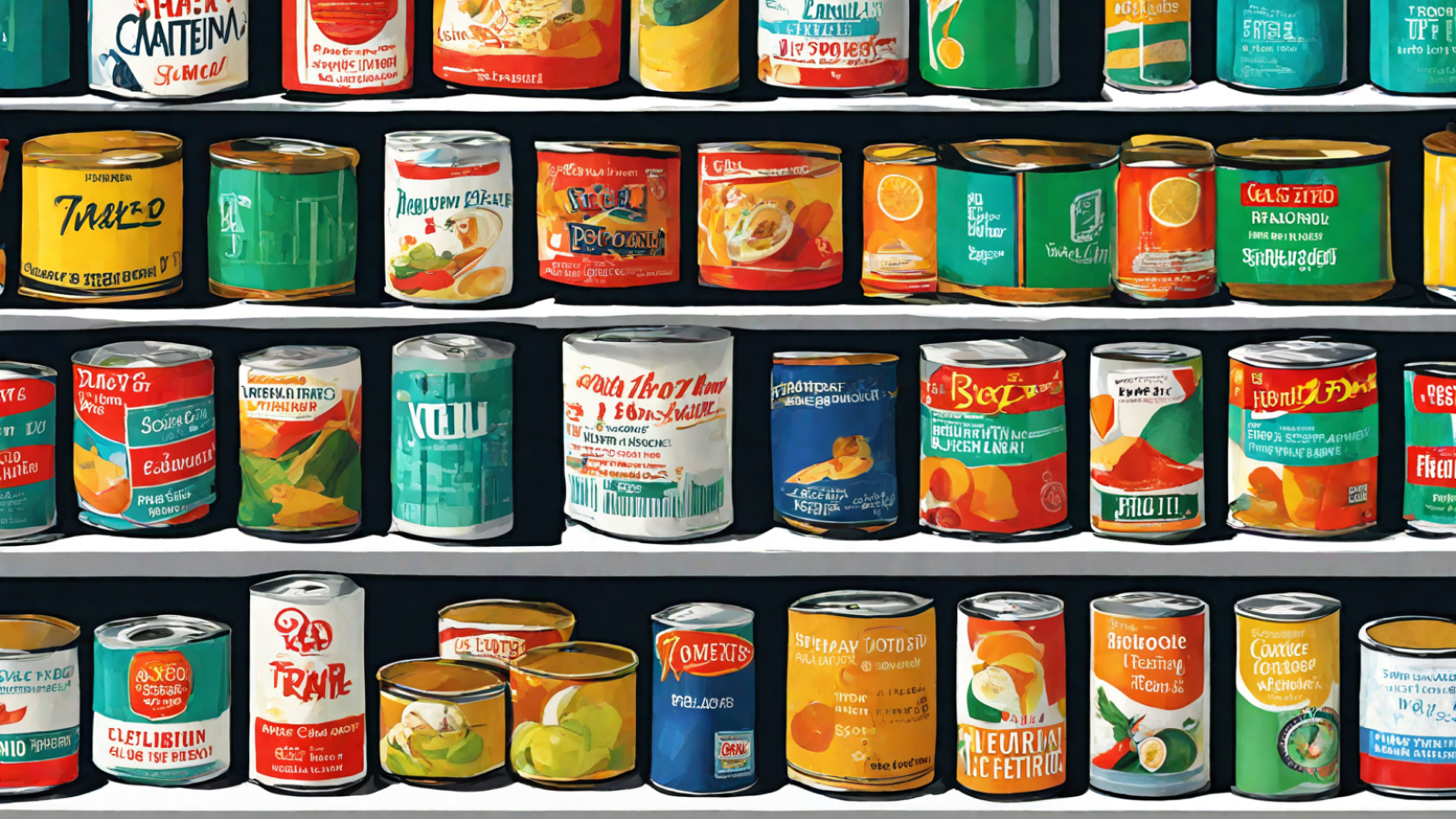The history of canned food development is a fascinating tale of innovation and perseverance. From its humble beginnings to becoming a staple in households worldwide, canned food has revolutionized the way we preserve and consume food.

This article delves into the significant milestones and key figures that shaped the history of canned food, highlighting the transformative impact it has had on our society.
1.The Birth of Canning:
The story begins in the late 18th century when the French confectioner Nicolas Appert made a groundbreaking discovery. In 1809, Appert successfully preserved food in sealed glass jars, a process known as "appertization." This breakthrough caught the attention of Napoleon Bonaparte, who sought a reliable method to feed his armies during their campaigns. As a result, Appert's method earned him a prize of 12,000 francs from the French government in 1810. This marked the birth of canning as we know it today.
2. Tin Can Invention:
While Appert's method utilized glass jars, it was the invention of the tin can that truly revolutionized the canning industry. In 1810, Peter Durand, an English merchant, patented the idea of preserving food in tin-plated iron cans. The use of tin cans offered several advantages over glass jars, including durability, portability, and lower cost. Durand's invention laid the foundation for the mass production and widespread use of canned food.
3. Commercialization and Expansion:
The commercialization of canned food gained momentum in the mid-19th century. In 1813, Bryan Donkin, an engineer, established the world's first commercial canning factory in London. Donkin's factory produced a variety of canned goods, including meat, fish, vegetables, and fruits. The success of this venture led to the rapid expansion of canning facilities across Europe and North America.
4. Canned Food during Wartime:
Canned food played a vital role in sustaining troops during times of war. During the Crimean War (1853-1856), canned food became a staple for soldiers due to its long shelf life and ease of transportation. The American Civil War (1861-1865) also witnessed the widespread use of canned food by both Union and Confederate forces. This increased demand for canned provisions fueled the growth of the canning industry.
5. Technological Advancements:
The late 19th and early 20th centuries saw significant advancements in canning technology. In 1866, the invention of the first successful can opener by Ezra J. Warner simplified the process of accessing canned food. Additionally, the development of more efficient canning machinery, such as the continuous rotary pressure sterilizer by Charles A. Pillsbury in 1898, increased production capacities and reduced costs.
6. Nutritional Value and Health Benefits:
Canned food not only provided convenience but also offered improved nutrition and health benefits. In the early 20th century, the U.S. Department of Agriculture conducted studies on the nutritional value of canned fruits and vegetables. These studies revealed that canning preserved many essential vitamins and minerals, making canned produce a valuable source of nutrition, especially during winter months when fresh produce was scarce.
7. Canned Food and World War II:
World War II witnessed a resurgence in the importance of canned food. Canned goods became a crucial part of military rations, providing sustenance for soldiers on the front lines. Additionally, rationing and food shortages on the home front led to increased reliance on canned food by civilians. The government encouraged citizens to plant victory gardens and preserve their harvest through canning to support the war effort.
8. Canned Food and Post-War Prosperity:
After World War II, the popularity of canned food soared as the world entered an era of post-war prosperity. Canned food became synonymous with convenience, offering quick and easy meal options for busy households. The introduction of new canning techniques, such as the development of double-seamed cans in the 1950s, further improved the quality and longevity of canned products.
The history of canned food development is a testament to human ingenuity and the quest for food preservation. From the initial experiments of Nicolas Appert to the widespread adoption of canned food in households worldwide, canning has transformed the way we store and consume food. Today, canned food continues to be a reliable and convenient option, ensuring that we have access to nourishing meals even in challenging times.
Contact Us
Your email address will not be published. Required fields are marked*



采访刊发中国罐头⾏业-01.jpg)

